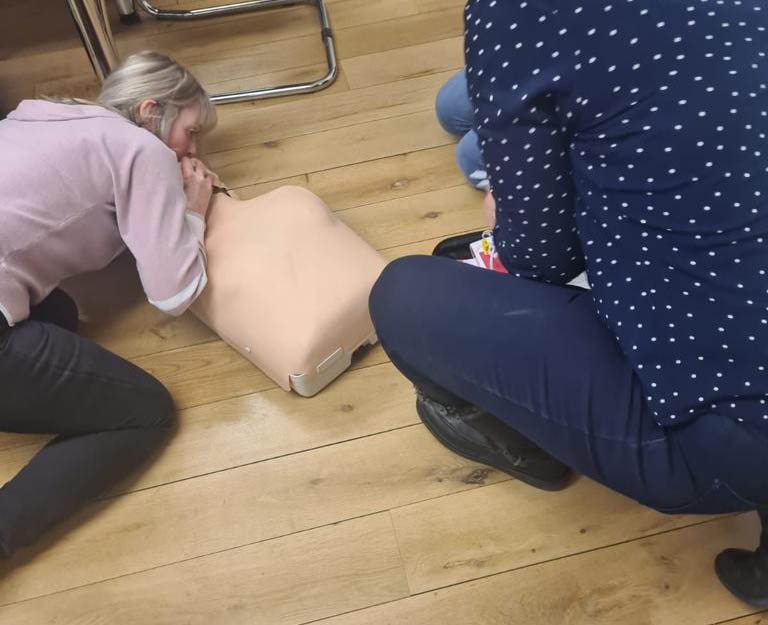Course overview
Cardiopulmonary Resuscitation (CPR) is a medical emergency that could happen to anyone, at any place and at any time.
Administering CPR in an emergency can double and even triple the survival chances of an individual experiencing a cardiac arrest. That makes a CPR life support certificate one of the most beneficial aids to have during a medical emergency with CPR first-aiders able to keep the person alive until professional help arrives.
What is covered in this course?
Occurring when the heart suddenly stops pumping, a cardiac arrest is a medical emergency that stops blood from flowing to the brain and other vital organs. 30,000 out-of-hospital cardiac arrests (OHCA) occur in the UK each year and only 1 in 10 people survive, making a cardiac arrest the nation’s most common yet preventable cause of death.
According to the Resuscitation Council UK, for every minute a person doesn’t receive CPR, their chance of survival drops by 10%. Proven to double or triple a person’s chance of survival when performed within the first few minutes of a cardiac arrest, CPR is a life-saving skill that’s vital to have in a medical emergency.
The CPR training course, also known as restart heart day, teaches participants how to perform CPR in a medical emergency. Participants learn how to perform CPR on a person experiencing heart failure, gaining the skills to perform chest compressions, deliver rescue breaths and use a defibrillator to keep them alive until emergency teams arrive.
With both practical and theoretical training, participants will gain the confidence to perform CPR and save a life. As part of the CPR course, participants will learn how to:
- Perform one-person CPR
- Perform CPR with rescue breaths
- Perform hands-only CPR
- Administer a shock from an automated external defibrillator (AED)
Why choose this course?
This course delivers resuscitation training to equip people with the skills to identify the signs and symptoms of cardiac arrest and treat the patient quickly using chest compressions, rescue breaths and a defibrillator.
As the UK’s leading independent provider of CPR training, we deliver CPR training nationwide at a venue of your choice. The course lasts 3hrs and costs a total of £395 + VAT for groups of up to 12 learners.
CPR training is delivered with amended steps to teach participants to administer CPR whilst minimising COVID-19 transmission.
Cost: On Site (3 Hours) £395 + VAT.
Cost: Public Classroom Course (6 Hours) £55 + VAT.
CPR Training – Life Support Certificate
Including both manual CPR and defibrillator training, participants will receive a life support certificate upon completion accredited by the Skills Training Group.
